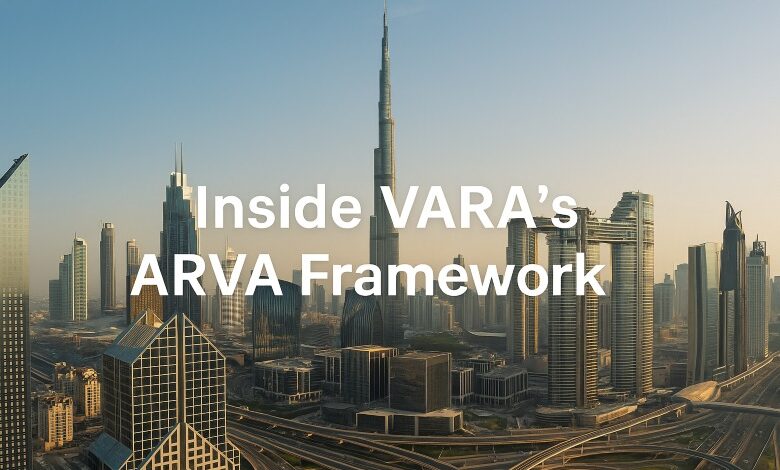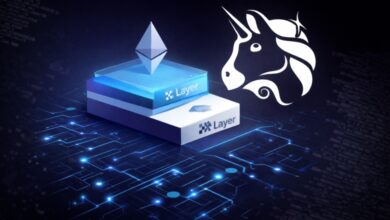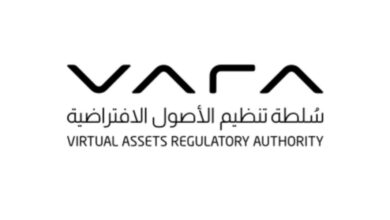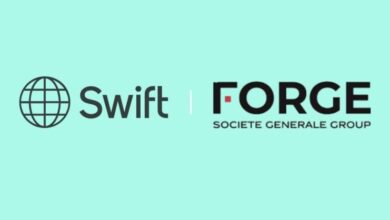Inside VARA’s ARVA Framework: A Legal Lens on Tokenizing Real-World Assets in Dubai

The tokenization of real-world assets (RWAs) has emerged as one of the most promising applications of blockchain technology. As institutional interest grows, regulators around the world are moving quickly to provide legal clarity. In Dubai, the Virtual Assets Regulatory Authority (VARA) has taken a significant step forward with the launch of its Asset-Referenced Virtual Asset (ARVA) Issuance Rulebook – Category 1, offering a defined path for compliant asset-backed token issuance.
To help unpack the legal and regulatory foundations of this new framework, Unlock Blockchain invited KARM Legal Consultants to contribute this analysis. The goal is to translate VARA’s technical language into practical insights for crypto founders, legal teams, and institutional players navigating the MENA region’s fast-evolving digital asset space.
How VARA Defines ARVAs?
Under VARA’s rulebook, ARVAs are classified as virtual assets that represent rights or claims over real-world assets. These rights may be current or future, direct or indirect, and can also include entitlements to income streams. The definition is intentionally broad, encompassing structures such as wrapped tokens, fractionalized instruments, and securitized or derivative formats.
This flexible definition aligns closely with the European Union’s Markets in Crypto-Assets (MiCA) regulation, which introduces a similar category known as Asset-Referenced Tokens (ARTs).
A New Regulatory Stack for Token Issuers
Issuing ARVAs in Dubai requires VASPs to comply with four foundational rulebooks: Company, Compliance and Risk Management, Technology and Information, and Market Conduct. Together, these establish a unified legal framework that spans governance, operational resilience, risk mitigation, and investor protection.
This layered structure ensures that token issuers are not only licensed but also operationally sound, with clear internal controls, robust risk assessment procedures, and compliance systems aligned with international best practices.
Core Requirements for ARVA Issuance
To ensure transparency and safeguard market integrity, VARA mandates that each ARVA be accompanied by a comprehensive whitepaper. This must include detailed disclosures about the token’s structure, underlying reserve assets, associated risks, and the terms of redemption.
ARVAs must be fully backed by reserve assets, which are to be held with licensed custodians and strictly segregated from the issuer’s own funds. VARA also requires that holders have the right to redeem ARVAs at par value, either in AED or through an equivalent mechanism specified in the whitepaper.
An independent audit of both circulating ARVAs and the reserve assets is required every six months. This enhances trust and provides ongoing validation that reserve requirements are being met.
Further, VARA may classify a VASP as a Significant ARVA Issuer, either at the time of licensing or during its operations. Such issuers could be subject to additional supervisory obligations, reporting requirements, and operational restrictions. This designation echoes the MiCA framework, which similarly distinguishes between regular and systemically important token issuers.
Capital and Compliance Safeguards
VARA imposes a capital requirement for ARVA issuers: the greater of AED 1.5 million or 2% of the average market value of the reserve assets. This ensures issuers maintain a financial buffer capable of supporting redemption requests, especially under stressed market conditions.
In line with national policy, the issuance of anonymity-enhanced virtual assets remains prohibited in Dubai. This ban reflects the broader commitment of UAE regulators to uphold transparency, traceability, and anti-money laundering standards.
License Revocation: When Compliance Falls Short
VARA has also outlined scenarios in which a VASP’s ARVA issuance license may be revoked. These include failure to issue an ARVA within six months of license approval, the inclusion of misleading or inaccurate information in whitepapers or marketing materials, and breaches of regulatory obligations in other jurisdictions. These conditions reinforce VARA’s expectation that compliance is not a one-off event, but a sustained commitment.
DLD’s Pilot: Bringing Tokenization to Real Estate
VARA’s regulatory work is being matched by parallel efforts from other government bodies. The Dubai Land Department (DLD) has launched a pilot project under its Real Estate Evolution Space (REES) initiative, in partnership with VARA, the Dubai Future Foundation, and the Central Bank of the UAE.
The pilot is focused on blockchain-based real estate tokenization and aims to enable fractional ownership of property assets. By conducting regulatory testing and market assessments, the initiative marks one of the region’s most concrete steps toward integrating real estate and Web3 infrastructure in a legally compliant way.
A Turning Point for RWA Tokenization in the UAE
As of May 27, 2025, the total global cryptocurrency market capitalization stands at $3.42 trillion, with RWA tokens accounting for more than $58.6 billion. This surge highlights the growing appetite among both institutional and retail investors for digital assets with real-world backing.
Through the ARVA Rulebook, VARA offers one of the world’s most structured approaches to RWA tokenization. By combining legal clarity with operational requirements and flexible design, the framework positions Dubai as a jurisdiction that not only embraces blockchain innovation but understands the regulatory scaffolding it demands. For builders, legal teams, and compliance professionals working across MENA, this is a key moment to engage. The rules are here—and so is the opportunity.





